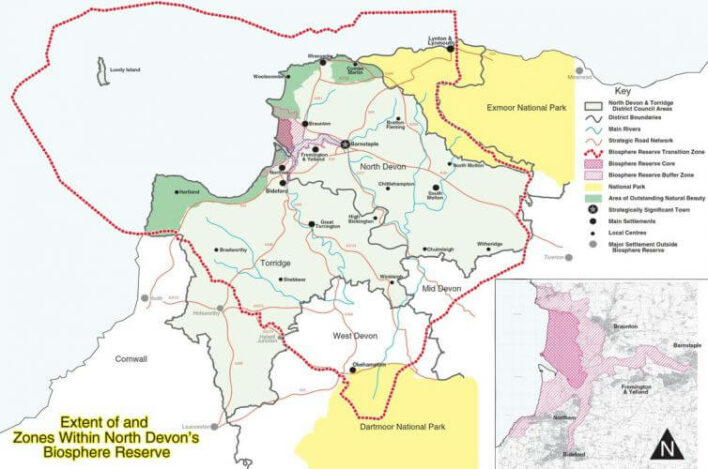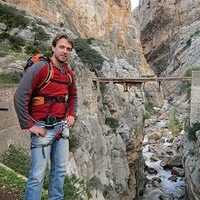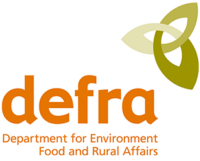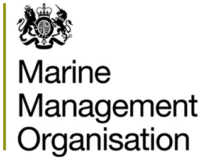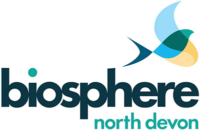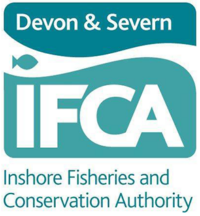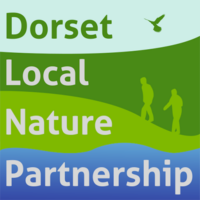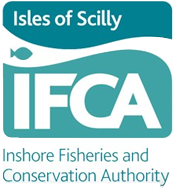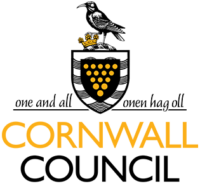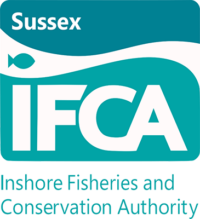Project team
Why it matters
The marine environment is an incredibly diverse biological resource providing a wide range of benefits and services to society. It supports more than 29,000 jobs in the South
West region and delivers direct impact Gross Value Added (GVA) of £1.4bn and aggregate GVA (including sector multipliers) of £3.6bn. The marine environment influences the
region’s culture, shapes coastal communities and benefits human health and wellbeing. Marine habitats have the potential to mitigate climate change by storing carbon, supporting sustainable marine industries and underpinning a blue economy.
However, this marine’s natural capital (NC), with a national estimated value
of £211bn, is threatened by human activities, population growth and
climate change.
With increasing government investment and policy aiming to better protect and manage the marine environment, the SWEEP marine team have pioneered a new holistic approach to marine management, for the first-time producing asset and risk registers of marine habitats in their current conditions to strengthen decision making at local and national level. This science-backed Natural Capital approach enables a whole ecosystem view that considers the functioning of the marine environment and all of the environmental, economic and societal assets and services it provides.
Defra set up its Marine Pioneer Programme to test approaches to delivering the 25 Year Environment Plan (25YEP), specifically testing of new tools and methods as part of applying a natural capital approach in the marine environment.
SWEEP tools and services facilitated the success of this new approach, underpinning the outcomes and recommendations the Pioneer produced. The Pioneer programme and its SWEEP work fed directly into the UK Government’s marine Natural Capital Ecosystem Assessment, providing foundational evidence for the approach going forward.
SWEEP outputs underpinned the World’s 1st Marine Natural Capital Plan, designation of the UK’s first World Surf Reserve and fed directly into the development of fisheries management plans for North Devon, which are now informing national processes. The tools were replicated in other areas, including two other European Marine Sites, and informed the development of the UK’s 1st National Marine Park. Application of SWEEP outputs to fisheries underpinned legal protection of 304km2 of seabed to restore kelp forest and provided key evidence for an Isles of Scilly byelaw review.
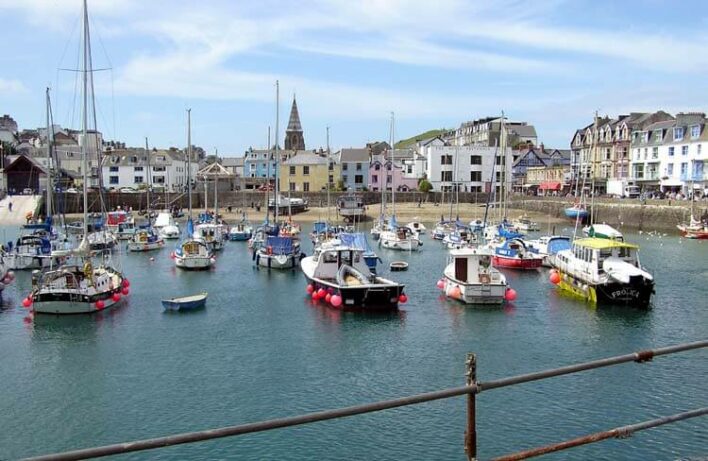
Partners
SWEEP outputs were the fundamental basis upon which all of the rest of the work was done in the marine pioneer. It would have been next to impossible to do a lot of the other work without that basis.
Aisling Lannin, MMO
What we did
The team applied and extending the impact of their tools and methods both within the North Devon Biosphere Reserve (NDBR) and to other regions in the South West. Working with the NDBR, SWEEP outputs, particularly the Geonode and Asset & Risk Register were used to co-produce the UK’s 1st Marine Natural Capital Plan (MNCP). Additional funding enabled the team to develop detailed business cases relating to Blue Carbon, Aquaculture and no-take and harvest, to guide strategic development and planning towards a blue economy.
For the first time, a natural capital approach was taken to develop a sustainability appraisal and applied to the MNCP with the methodology shared through a public report. A peer-review paper was produced on ‘Developing policy and practice for marine net gain’. The principles were applied to a case study to test the applicability of offshore wind farm ecological monitoring data to net gain and natural capital frameworks and the treatment of socio-economic issues within environmental impact assessment for offshore wind to provide lessons for the future application of natural capital and net gain frameworks.
Working with the Inshore Fisheries and Conservation Authority (IFCA) on the Isles of Scilly, SWEEP developed a Natural Capital Asset and Risk Register to Inform Management of Isles of Scilly Fisheries Resources. Alongside this, ‘An evaluation of the social and economic impact of a Marine Protected Area on commercial fisheries’ was published to provide insight into the spatial use and economic performance of a fishery, and linked fisher wellbeing across economic, social and health domains, over a 12-year timescale pre- and post-Marine Protected Area (MPA) designation.
SWEEP NC approaches were integrated into management plans on the Exe (through a report on ‘Enabling an Ecosystem Service and Natural Capital Approach’) and Tamar Estuaries and the emerging governance framework for the Plymouth Sound National Marine Park. In Cornwall, working closely with Cornwall and Isles of Scilly Local Nature Partnership (CIoSLNP), the Marine Liaison Committee and Cornwall County Council, SWEEP co-defined a marine Nature Recovery Strategy.
Beyond the region, SWEEP collaborated with: Sussex IFCA to undertake a NC assessment as part of a trawling byelaw review; Tyneside Council to integrate SWEEP learning into an outline business case for a 6 year coastal resilience project on the North East Coast; the Yorkshire Marine Nature Partnership to develop understanding of NC.
At a national scale, SWEEP produced guidance on ‘Developing policy and practice for marine net gain’ that has directly contributed to the development and delivery of the UK Government’s marine Natural Capital and Ecosystem Assessment (mNCEA) programme, advising the lead delivery bodies (e.g. MMO, Defra, EA) on the planning of evidence collection to integrate the NC approach. SWEEP continued to input to emerging plans for a sustainable finance mechanism and a Blue Impact Fund; and contributed to public outreach including WWF films and a Blue Carbon artist in residence.
At an international scale, SWEEP contributed to ‘A report for Ascension Islands-Natural Capital Assessment’ and embedded SWEEP methods into the £5.8M Blue Communities project, funded from the UK Government’s Global Challenges Research Fund.
Contributing to SWEEP’s influence has been the significant roles key researchers and partners have performed e.g. Prof. Mel Austen was the first and only marine representative on the Government’s Natural Capital Committee (NCC), feeding SWEEP knowledge into national level decision-making processes, and is Chair of the North Devon Biosphere Partnership. Dr Sian Rees is a member of the Cornwall and Isles of Scilly Marine Liaison group and the Heart of the SW local Enterprise Partnership. At a national level SWEEP researchers contributed to the Defra Marine Natural Capital Ecosystem Assessment Advisory Group, Codeveloping marine net gain working group with Defra and the MMO, Defra Science Advisory subgroup: Biodiversity Targets, and the Environment Bill Targets workshops. The team have produced more than 44 academic publications, including ‘A marine natural capital asset and risk register—Towards securing the benefits from marine systems and linked ecosystem services’ (Rees et al 2022) along with accessible reports, infographics and presentations.
Impacts & benefits
- Informed policy and practice including:
- – 1st marine Natural Capital Asset & Risk Register
- – Influenced >17 governance policies and programmes
- -Provided key evidence for Defra Marine Pioneer & £38m marine Natural Capital Ecosystem Assessment
- – Embedded NC in wider public body processes
- Invested in North Devon Natural Capital including:
- Co-produced world’s 1st Marine Natural Capital Plan
- Strengthened investment potential in blue carbon (>£1m) & aquaculture (€325m pa)
- Underpinned designation of UK’s 1st World Surf Reserve
- Redefined management including:
- Established a new whole-ecosystem approach
- Embedded the new approach within 3 European Marine Sites
- Informed new £6.5M project to restore habitats on UK’s Northeast Coast
- Strengthened Planning including:
- Laid foundations for marine net gain
- Implemented a natural capital approach to Sustainability Appraisals
- Strengthened Fisheries Management including:
- Informed new government guidance on fisheries management
- Underpinned legal protection of 304km2 of seabed to restore kelp forest
- Provided key evidence for Isles of Scilly byelaw review
- Increased Environmental resilience including:
- Strengthened management of Marine Protected Areas
- Informed nature-based solutions and blue carbon debate
- Enhanced international management & conservation efforts
- Secured investment including:
- Influenced £50m new funds plus >£27m anticipated
- Capability for 1,000 new jobs in North Devon
- Underpinned £75m Blue Impact Fund
- Shifter perceptions and cultures including:
- >200 individuals & 62 organisations directly engaged
- Engendered a NC cultural shift; >6 core partners changed their approach
- 44 academic publications & a rise in social science positions
All the work that SWEEP has done, and the Marine Pioneers have done is absolutely fantastic. I think what it actually has done is to translate the NC approach from something that is very abstract to something quite practical to tell us and show us how we could potentially apply the approach in practice.
Sofiya Stoyanova, Defra
Looking to the future
On the strength of the impact that has been delivered so far, we anticipate further significant benefits will be delivered over the next 5 years through policy influence, such as Marine Net Gain, and further government departments integrating SWEEP informed approaches into their practices; the delivery of the mNCEA and review of UK Marine Plans will likely see the use of a natural capital approach to sustainability appraisal; the development of Marine Nature Recovery Networks, informed by the Cornwall pilot Local Nature Strategy and implementation of Cornwall’s Environmental Growth Strategy; further investment and the development of a blue carbon economy in North Devon along with the realisation of the benefits of the World Surf Reserve Designation; the use of SWEEP approaches in fisheries management is highly likely to continue given the success of the Sussex byelaw; and the results of the Isles of Scilly byelaw will be made public.
